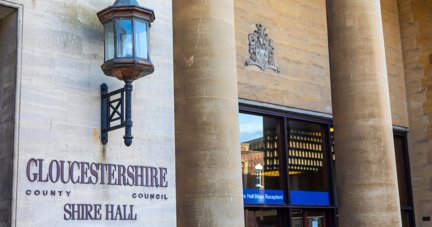The choice of mortgages on the market these days can be overwhelming, especially for those coming to an end of their fixed rates. With fluctuating interest rates and challenging financial conditions, engaging the help of a financial planning practice could be key to choosing the best mortgage to suit your finances.
SoGlos sat down with William Collins, managing director of Sanderson Financial, a Gloucester-based firm with over 30 years' experience of helping families and businesses manage their money and mortgages, to get the low down on what to do after a mortgage deal runs out.
If a homeowner's fixed-rate mortgage comes to an end this year, and they've been on it for, say, five years, what happens next?
A few months ahead of any fixed rate expiring, the market (including your existing lender's offering) should be explored to ascertain the variety of products available that will suit your circumstances. Doing nothing will normally mean your existing mortgage lender will transfer you on to its standard variable rate which, generally, is considerably higher than any product you may have been on previously or could consider.
What are the options after a fixed term ends?
As mentioned, the default option would be that your mortgage lender will transfer you on to its standard variable rate. However, there are a plethora of fixed rate and discounted rate options over varying terms which you can choose from, depending on your individual circumstances, which will avoid you being placed on the higher variable rate.
There are so many different types to choose from. Which ones are the best, and why?
Individuals who prefer to budget their monthly outgoings would normally choose a fixed-rate option. The term of the fixed rate would normally be determined by their personal circumstances and aspirations. Fixed rates, however, normally carry an early-repayment penalty if the mortgage were redeemed within the fixed-rate period.
Individuals thinking of moving house or repaying the mortgage over the short term would be unwise to lock themselves into a fixed rate, which could penalise them when the mortgage is repaid. Such individuals would normally be advised to consider a mortgage product that does not carry an early repayment penalty. These normally take the form of discounted rates or products that track the movements that occur in the Bank of England base rate.
Should a homeowner wait and see what happens with interest rates before committing to a new agreement?
There is currently a rising trend in interest rates. As of now we have had 13 consecutive Bank of England rate rises, and it is widely predicted that there will be more to follow. With this in mind, many people are considering reconstructing their mortgage to take advantage of current rates before they go higher still.
For many people this may entail paying an early repayment penalty. Before making any move of this nature, it would be sensible to employ the services of a professional mortgage adviser who can analyse the pros and cons of considering such a move, and who can advise accordingly.
Should we go directly to our bank for a new mortgage, or look at using a mortgage advisor, such as the consultants at Sanderson Financial?
It is beneficial to employ the services of a professional mortgage adviser. Most will have access to a wide range of mortgage lenders and products. They can also analyse your personal circumstances and advise on the most appropriate way forward to suit.
Banks and building societies will generally have on offer just the mortgage products from their own range and will not be able to research from the much wider scope of products that are available across the market.
Your home may be repossessed if you do not keep up repayments on your mortgage.



















